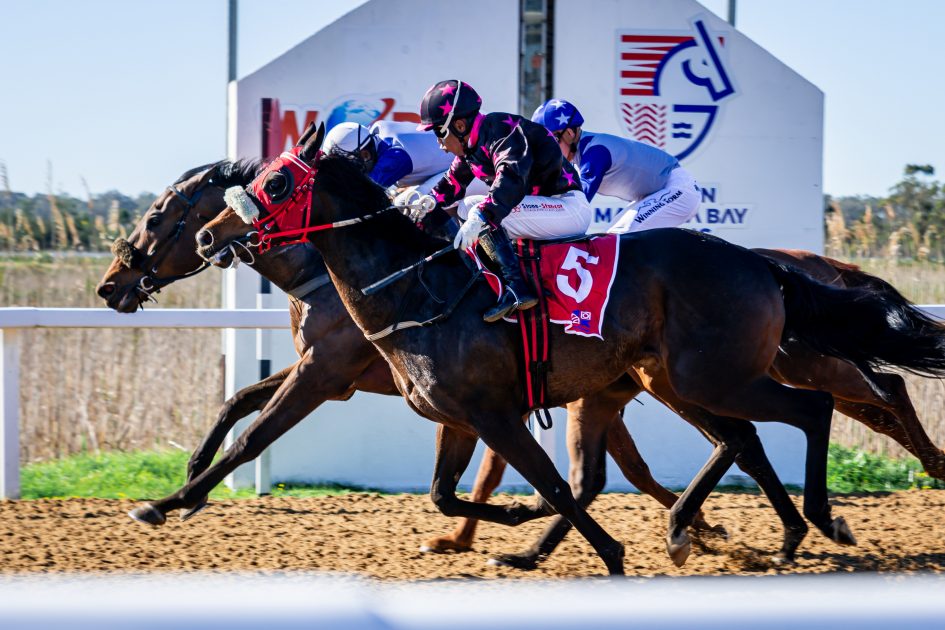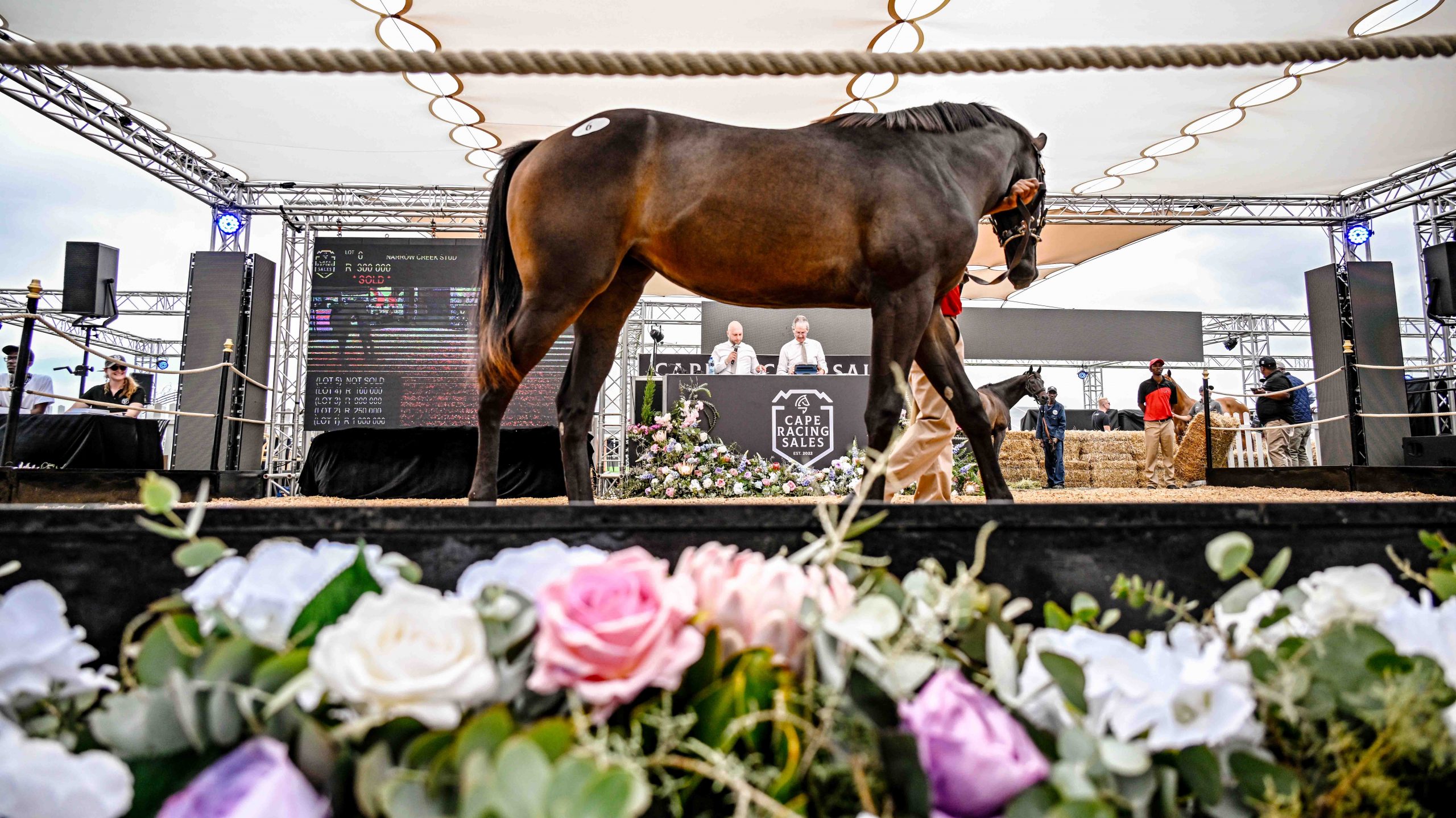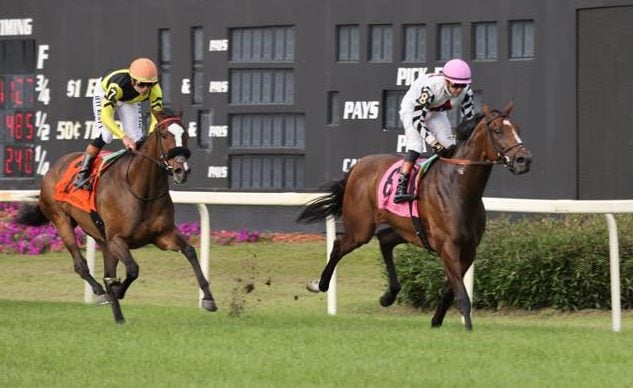Conspiracy theories abound in horseracing. And nothing quite fuels the fire than when officialdom deviate from the norms and act marginally out of character. Even when there may be a very good reason for it.
Predictability will always be a flaw in routine controls. That’s why in the old days, for example, retail staff were asked to draw out of a bottle full of marbles when departing for home on closing. If one drew a red marble, you were pulled aside and frisked.
Nobody complained as it was completely random. And definitely not personal, contrived or favouritism.
But what’s the point, you’re probably asking?

Matsuyamo gets his head down to beat El Moriachi (Yeni) and Central City (Fourie) in a tight finish at Fairview on Monday (Pic – Pauline Herman)
Most every winner countrywide has a specimen taken for analysis. The winner seems to be the horse that gets a specimen taken. It’s not a rule, but it’s an unwritten process.
But not the longest-priced winner in recent days.
That’s the 50-1 Matsuyamo, who won the fifth race at Fairview on Monday 28 August.
Punters notice this kind of thing. Call them pocket talkers or keyboard warriors, they ask questions. And a quick look at recent meetings tells a story.
At the Vaal on Thursday 24 August, all nine winners were tested.
On Friday 25 August at Fairview, all eight winners were tested.
At Hollywoodbets Greyville on Sunday, all eight winners were tested.
But at Fairview on Monday, Matsuyamo (50-1) beats El Romiachi (11-2) narrowly, with the winner’s stablemate and favourite Central City (7-2) in third.
Only 0,30 lengths seperated the top trio.
Matsuyamo, who is on a sale in a couple of weeks, doesn’t crack a mention for an improved run inquiry, or a test.
He was the only winner on the afternoon who wasn’t tested. Random? Probably. Clever? Maybe not.
But the runner-up El Romiachi, a horse who got an honourable mention from 4Racing CEO Fundi Sithebe at the recent Equus Awards, gets tested.
As was Fire Lord (also 50-1) who ran one from last.
Why? Stipes discretion? That would make sense.
But what about the punting public? The winner enjoys the all-weather, but even his top trainer hinted he was ‘a bit of a surprise’.
Watch the replay here:
Coincidentally, Sandile Khathi, who rode the winner, was charged with a contravention of Rule 58.10.2 (read with Guideline M on the use of the crop) in that as the rider of Matsuyamo he misused his crop by striking the horse one more time than the permitted 12 times, which was not warranted when considering the circumstances of the race.
Khathi signed an admission of guilt and was fined R2 000.
We were under the impression that the twelve strike rule was a hard and fast mathematical benchmark.
The reference to ‘which was not warranted when considering the circumstances of the race’ is puzzling, and implies a measure of objective discretion rests with the Stipes.








